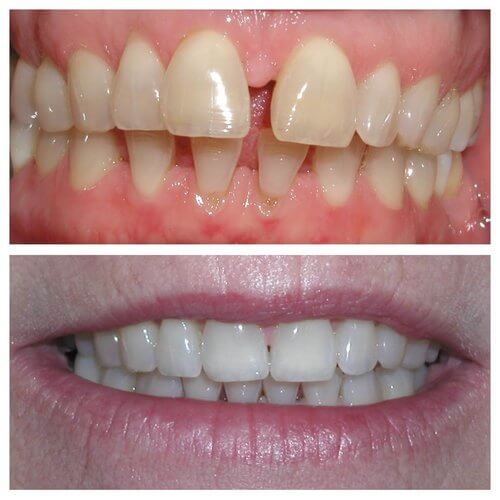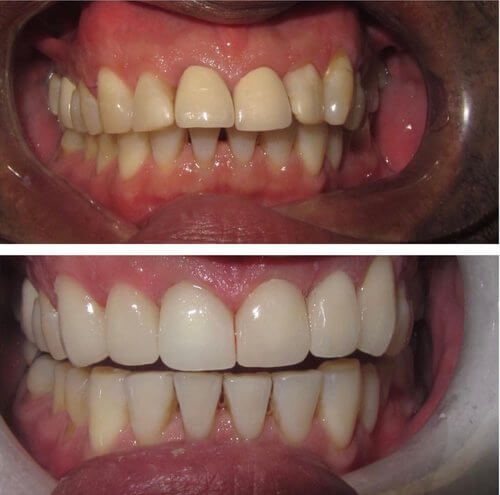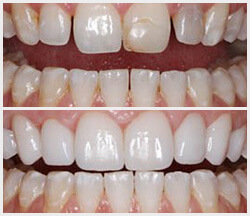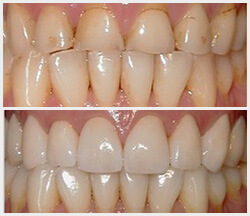Symptoms of Root Canal Therapy and When to Seek Treatment
Many patients are apprehensive about getting a root canal treatment because they fear the pain associated with the procedure, which is a common myth. But, the truth is, a root canal can provide significant relief from the pain and discomfort caused by an infected tooth.
So, how do you know if you need root canal therapy? Discover common signs of dental infection with Drs. Olsen, Napolitano, & Cangialosi, and what to do when you suspect your tooth is infected.
Signs You Need Root Canal Therapy
Persistent Pain
One of the most significant indicators that suggest you need root canal therapy is persistent pain. If you experience sharp, throbbing pain in your tooth, especially when you bite down or apply pressure, it could be a sign of infected pulp. The pain can also spread to your jaw, ear, or neck, indicating that the infection has spread beyond the tooth.
Sensitivity to Temperature
Do you experience discomfort or pain when you consume hot or cold beverages or food? This temperature sensitivity could indicate that the nerves inside your tooth are damaged or infected and that you need root canal therapy.
Gum Swelling and Tenderness
If you notice swelling or tenderness in your gums around the affected tooth, it could be a sign of an abscess. An abscess is a pus-filled pocket that forms at the tooth’s base and can cause severe pain and discomfort. In such cases, root canal therapy is essential to prevent the infection from spreading to other parts of the body.
Tooth Discoloration
An infected tooth can appear discolored or darkened, indicating that the pulp inside is damaged. If your tooth has changed color and you experience pain or sensitivity, seek immediate dental treatment.
Cracked or Chipped Tooth
A cracked or chipped tooth can expose the pulp, leading to infection and decay. If you notice a crack or chip in your tooth and experience pain or sensitivity, you should consult your dentist immediately.
Risk Factors of Developing a Tooth Infection
While anyone can develop an infected or damaged tooth that requires root canal therapy, certain factors can increase your risk. These include:
- Poor Oral Hygiene: Failing to brush and floss regularly can lead to a buildup of plaque and bacteria, which can eventually lead to tooth decay and infection.
- Tooth Injury: A cracked or chipped tooth can expose the pulp and make it more susceptible to infection and decay.
- Deep Cavities: Untreated cavities can progress and reach the pulp, leading to infection and pain.
- Previous Dental Work: If you have had multiple dental procedures on a tooth, such as fillings or crowns, it may be more susceptible to infection and require root canal therapy.
Frequently Asked Questions
What happens if you don't get a root canal treatment?
If left untreated, an infected or damaged tooth that requires root canal therapy can lead to complications and even tooth loss. The infection can spread to the surrounding teeth and gums, causing further decay and damage. Ignoring the signs you need root canal therapy can lead to more pain, expensive dental procedures, and possibly tooth extraction.
How can a dentist tell if you need a root canal treatment?
Your dentist will perform a comprehensive examination to determine if root canal therapy is necessary. They’ll look for the signs you need root canal therapy, such as tooth sensitivity, pain, discoloration, and swelling. They may also use X-rays to examine the tooth and determine the extent of the damage and infection. In some cases, your dentist may refer you to an endodontist, a specialist in treating tooth pulp and root canal therapy.
What does your tooth feel like if you need a root canal treatment?
If you need root canal therapy, your tooth may feel sensitive or painful, especially when you bite down or apply pressure. You may also experience throbbing or aching pain, as well as sensitivity to hot and cold temperatures. In some cases, the tooth may become discolored or darkened, and the surrounding gums may be swollen and tender.
How do I know if my cavity has reached the pulp?
If your cavity has reached the pulp, you may experience symptoms such as:
- Pain when you bite down or apply pressure to the tooth
- Sensitivity to hot and cold temperatures
- Swelling or tenderness in the surrounding gums
- A small bump or pimple on the gums near the affected tooth
- Discoloration of the tooth, such as darkening or grayness
Don’t Put Off Necessary Dental Work
Root canal therapy is a safe and effective dental treatment that can save your tooth and prevent further complications. If you experience any of the signs mentioned above, seek immediate dental treatment. Early detection and treatment can help preserve your tooth and prevent more significant problems.
Call our Staten Island dental office at (718) 948-5111 for more information today.



Insurance
We accept many insurances. Please contact one of our Insurance Coordinators to discuss your dental coverage plan.
(718) 948 5111
appointments@sidental.com
Open 7 days a week
Reviews
The dentists are absolutely excellent…
“I have been going here for years. The dentists are absolutely excellent and they always have an appointment available that fits into a busy schedule. I also completed invisilgn and my teeth are perfectly straight now. They also practice preventive medicine and just went in for my 6 month cleaning. Every time feel like I have a new set of choppers and best yet the check up noted no cavities!.”
— J.R
Pleasant visit
“As usual, it was a pleasant visit thanks to Dr. Nasso and her great staff..”
— C.M.
Always treated with courtesy and respect.
“Always treated with courtesy and respect. All of my questions were answered regarding upcoming treatments..”
— J.C.
Smile Profile




Put your best face forward.
Create a positive change to your teeth and your smile.
